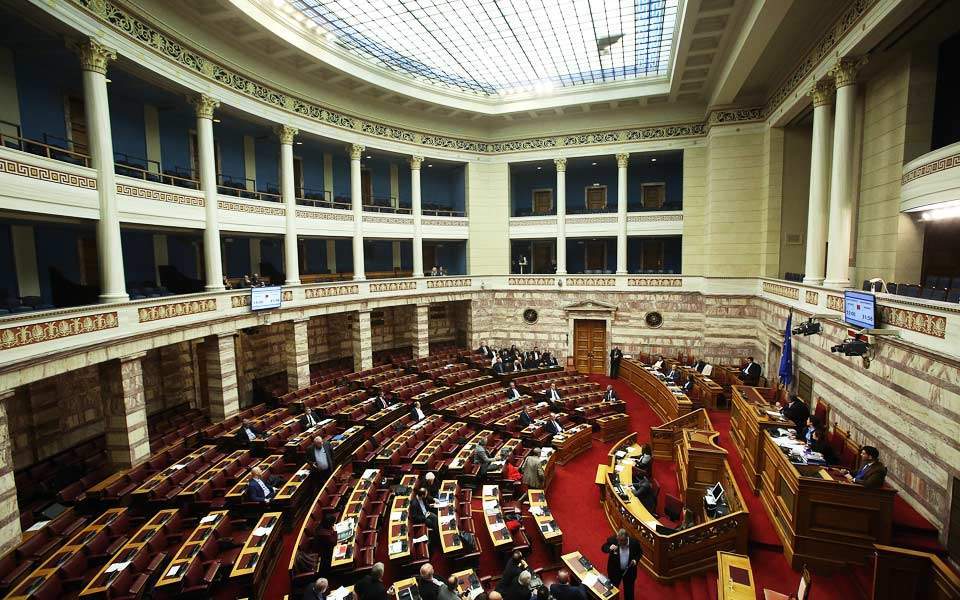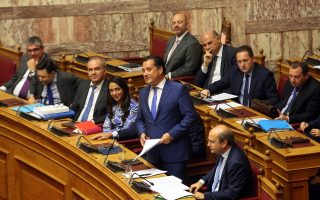Debate on election of president begins in parliamentary committee

An amendment that will preclude the dissolution of Parliament and early elections if there is a deadlock over the election of the country’s president was discussed by a special committee of lawmakers on Thursday within the context of the constitutional review.
What was clear was that Greece’s political parties are on the same page regarding the need to ensure that Parliament’s inability to elect the president will not lead to elections, but differ in their proposals on how this will be secured.
Changing the way the president is elected will ensure that the government will not be toppled by the main opposition if there is a deadlock during presidential elections in 2020.
Given that the amendment can be passed into law by a simple majority (at least 151 votes), the change will be based on the proposal drafted by ruling New Democracy.
This proposal stipulates that, as is the case today, the election of the president will be sought by three rounds of votes with required majorities of 200-200-180. If such majorities are not achieved, then the vote will be repeated after five days between the two candidates with the most votes. The candidate that wins 151 votes or more will be declared president.
ND’s proposal further adds that if neither candidate gets 151 votes or more, the vote will be repeated once more after five days and the candidate that wins by a “relative majority” – less than 151 votes – will be declared president.
In the event of a tie, the winning candidate will be the one who received the largest number of votes in the first ballot. If they were also tied in the first vote, then the older of the two candidates will be declared president.
The proposal put forth by main opposition SYRIZA was rejected by all political parties. More specifically, the leftist party’s proposal foresaw repeated votes over a period of six months.
It proposed that if no result was achieved after that time, the president would be elected directly by the people.





